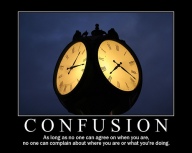“I Am Here” Conversations of Hope
Three years ago, I began writing occasional posts reflecting upon significant observations about the conversation with life that we as humans are daily engaging. Some of my posts were personal in nature, and some general. For one year I enjoyed the weekly opportunity to land with something meaningful to write about, write it, and respond to comments that followed. In 2010 my personal journey took a detour down a path that narrowed my scope, ability, and vision to write about anything. Life seemingly stopped. The creative dried up, the spontaneous flow of ideas and observations shrank into a day to day mode of surviving. My conversation with life and all of its granduer was reduced to a murmer with life. How does this happen? What did this mean and what did I do? Where was hope in the midst of the conversation that seemed absent of life? Sometimes in life silence gives birth to a new voice that has been longing to be spoken.
with life that we as humans are daily engaging. Some of my posts were personal in nature, and some general. For one year I enjoyed the weekly opportunity to land with something meaningful to write about, write it, and respond to comments that followed. In 2010 my personal journey took a detour down a path that narrowed my scope, ability, and vision to write about anything. Life seemingly stopped. The creative dried up, the spontaneous flow of ideas and observations shrank into a day to day mode of surviving. My conversation with life and all of its granduer was reduced to a murmer with life. How does this happen? What did this mean and what did I do? Where was hope in the midst of the conversation that seemed absent of life? Sometimes in life silence gives birth to a new voice that has been longing to be spoken.
Eventually, I will expand more upon the details of what I am stating and asking above, but for now and at this juncture, I am ready to begin writing about the journey that has culminated many new awakenings and precedes what I anticipate will be a contribution to whomever reads these posts.

Everyday is a “Conversation with Life,” understanding and being engaged in the conversation is part of the labor of life, and the labor of love for life. What happens though when that conversation dwindles to a few mere sentences? More to come. As the birth of new Life is celebrated during this Christmas Season I welcome new beginings, hope, light, and life. I welcome the birth of Christ!

 thought about it? Jesus confronted, held and touched, and healed one of the most debilitating and damaging illnesses of His day-leprosy. All lepers (due to the contagion of the illness) were automatically removed from society, held with disregard, treated as if substandard, and lastly, left to die within their little community of lepers. How tragic and utterly baneful this must have been for those who contracted the disease. Why did Jesus go out of his way to make a difference, to relate, engage, heal, and love these people?
thought about it? Jesus confronted, held and touched, and healed one of the most debilitating and damaging illnesses of His day-leprosy. All lepers (due to the contagion of the illness) were automatically removed from society, held with disregard, treated as if substandard, and lastly, left to die within their little community of lepers. How tragic and utterly baneful this must have been for those who contracted the disease. Why did Jesus go out of his way to make a difference, to relate, engage, heal, and love these people? As in many of the Lord’s parables where he touches the very heart of broken, sinful, and lost humanity, He does so with these people. Jesus most often elevates the truthful, and compassionate response to humanity while ensuring that the point is not to expose humanity and how bad it is. “
As in many of the Lord’s parables where he touches the very heart of broken, sinful, and lost humanity, He does so with these people. Jesus most often elevates the truthful, and compassionate response to humanity while ensuring that the point is not to expose humanity and how bad it is. “


 When we begin to notice the emotional stickiness of a conversation, be aware that something is happening. The flow is absorbed by added mental processing to overcome and guarantee refuge in the event that there is not receptivity or connection. Flight, fight, or freeze, typically is our dominant response.
When we begin to notice the emotional stickiness of a conversation, be aware that something is happening. The flow is absorbed by added mental processing to overcome and guarantee refuge in the event that there is not receptivity or connection. Flight, fight, or freeze, typically is our dominant response.
